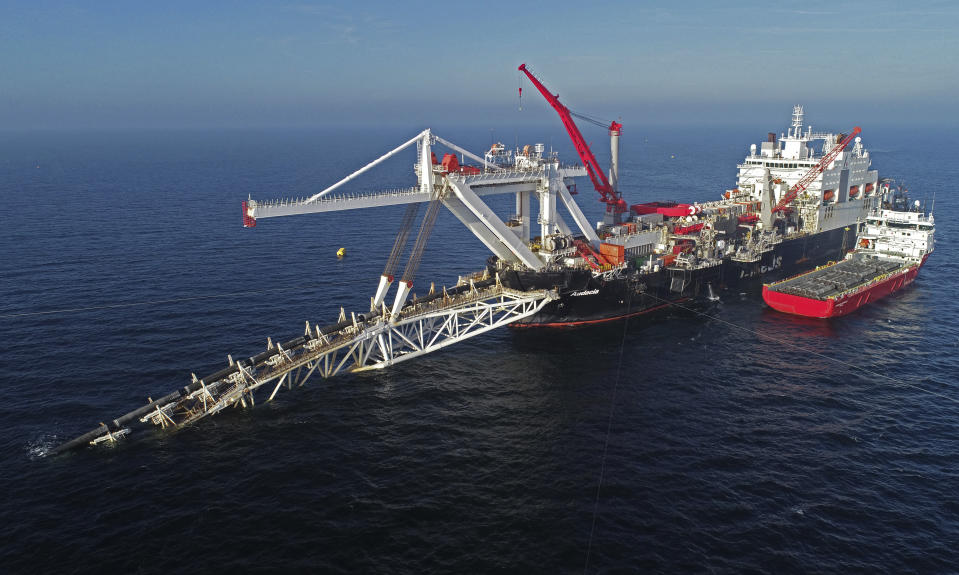US sanction threats won't stop Russia-Germany gas pipeline

Despite threats from Washington and protests from many EU member states, the Nord Stream 2 pipeline, which will transport an annual 55 billion cubic meters of natural Russian gas under the Baltic Sea to the German coast, is well on its way to completion, with some 800km out of a total of 1,230km of pipes already laid.
The €8bn ($9bn) pipeline, due to complete by the end of this year, has been frequently condemned by Donald Trump, who claims that it will make Germany too dependent on Russia for energy. The US president is also putting Germany under pressure to purchase more American liquified natural gas.
The US ambassador to Berlin, Richard Grenell, sent a letter to German companies involved in the project in January saying that they risk US sanctions.
On Monday, Nord Stream 2 spokesman Jens Müller said that the project was largely unaffected by the US’s new sanctions law — Countering America’s Adversaries Through Sanctions Act (CAATSA) — as investments and loan agreements completed before August 2017 were not at risk.
Müller said most of the western companies’ contracts were completed before the law came into effect, and therefore “Nord Stream 2 cannot be affected by sanctions.”
The pipeline is owned by Russia’s Gazprom, with the main investors Germany’s Wintershall and Uniper, Royal Dutch Shell, and Engie from France. It has also been opposed in the EU, with Ukraine in particular worried about losing money from its current gas transit fees to the new offshore pipeline.
European policy makers and business leaders have spoken out against the US threat of sanctions, noting that the EU alone is responsible for its energy policy.
“I know the US has concerns … but it is not so easy,” Thomas Bareiss, Germany’s energy secretary told the Bloomberg Future of Energy summit in London in October. “For Germany, Russia has always been a safe and reliable supplier for gas.”
A Forsa survey from January 2019 found 73% of Germans were in favour of the new pipeline, and 67% didn’t believe it would endanger Europe’s security or make it dependent on Russia for energy.
In February, however, the EU agreed to tighten regulation governing the pipeline, including that the pipelines won’t be owned solely by the gas supplier, ie Russia would not be the outright owner. The new regulations are currently awaiting European parliament approval.
German chancellor Angela Merkel has defended the pipeline on numerous occasions, claiming it will ensure a cheaper, reliable gas supply for western Europe. In Davos this year, she said Germany “will continue to receive Russian gas, that is clear, but we will also diversify and rely on liquefied petroleum gas, which mainly comes from the United States.”
Peter Altmaier, Germany’s economy minister told a newspaper recently that Germany will need more gas as it exits nuclear and coal power generation, but that “in the future, we want to depend neither on Russia nor on the United States.”

 Yahoo Finance
Yahoo Finance 